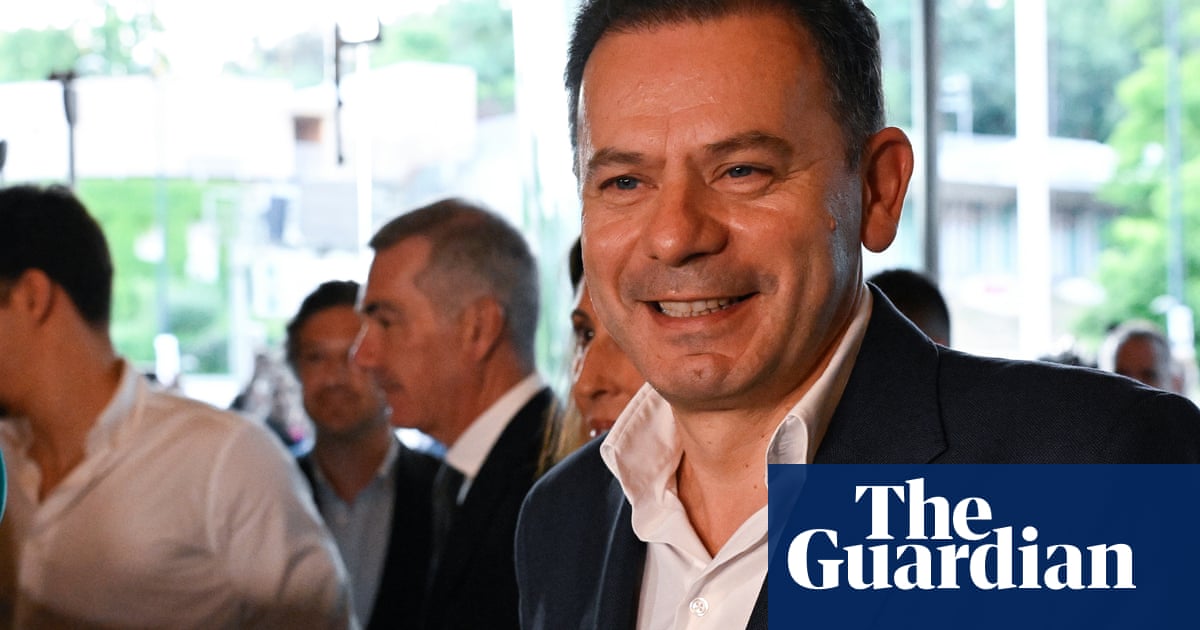The centre-right Democratic Alliance (AD), led by Portugal’s caretaker prime minister, Luís Montenegro, looks set to win the country’sthird snap election in three yearsbut to again fall well short of a majority, while the far-right Chega party could take a record 20% of the vote.
Three polls, published at 8pm local time by the three main television channels – SIC, RTP and TVI – put the AD on between 29% and 35.1%, with the Socialist party (PS) and Chega vying for second place on 19.4% to 26% and 19.5% to 25.5%, respectively.
If accurate, the polls point to a similar AD showing tothe previous general election in March 2024, when the alliance won 28.8% of the vote.
But the surveys show a far closer race between the PS and a seemingly resurgent Chega. Last time, the socialists won 28% of the vote, while Chega took 18.1% – dramatically up from the 7.2% it won in the 2022 election.
The early election was triggered in March after Montenegro used a confidence vote in his minority government to try to head offgrowing scrutiny relating to a data protection consultancythat he founded in 2021 and which he transferred to his wife and sons the following year.
Faced with questions over possible conflicts of interest, the prime minister – who has denied any wrongdoing or ethical breaches – said he hoped the vote would “end the atmosphere of permanent insinuations and intrigues”. Buthe failed to win the confidence of MPs and a fresh election was called.
The electoral campaign has focused onissues such as housing, public services and safety. Immigration – one of Chega’s priorities – has also risen up the agenda, and Montenegro’s caretaker government was recentlyaccused of pandering to the far rightafter it announced the expulsion of 18,000 irregular migrants earlier this month.
Speaking after he voted on Sunday morning, Montenegro said he was hoping for a good turnout in an election that would bring stability and “produce positive solutions [and] greater capacity for the country to grow and prosper, so that there can be greater social justice and more opportunities”.
The PS leader, Pedro Nuno Santos, called for huge participation after he cast his ballot this morning, saying he did not want there to be any unpleasant surprises on Monday.
“This is the time to call for participation, for respect for democracy, for civic participation, for tolerant respect for everyone – but with a lot of participation, that’s what I want,” he said.
Chega, which isled by the former football pundit André Ventura, has seen a huge surge in support over the past few years which has enabled it to become the third-largest party in parliament.
The party has sought to capitalise on widespread dissatisfaction with Portugal’s mainstream left and right parties as the country continues to suffer a housing crisis, soaring rental and property prices, stressed health and education systems, and an average monthly wage of €1,602 (£1,346).
But Chega’s vows to clean up politics – and its hardline stance on immigration and people abusing the benefits system – have recently been undermined by the kind of corruption and sleaze scandals it has been railing against.
Sign up toThis is Europe
The most pressing stories and debates for Europeans – from identity to economics to the environment
after newsletter promotion
In January, Ventura’s party expelled one of its MPs after he was accused of stealing suitcases at several airports. Another member of the party was caught drunk-driving the same month, while a third has been charged with paying for oral sex with an underage male who was 15 at the time.
Montenegro has steadfastly maintained his veto on any deals with Chega, saying: “Governing with Chega is impossible for three reasons: it isn’t reliable in its thinking; it behaves like a political weathervane, always changing its mind, and it’s not suited to the exercise of government.”
The small Liberal Initiative party – which could throw its weight behind Montenegro, bringing his coalition a handful of seats but leaving him well short of a majority in the country’s 230-seat assembly – has alsocategorically refusedto do anything that would help Chega into power.
The Chega leader’s final few days of campaigning wereinterrupted by ill health.
After twice falling ill at rallies this week and receiving hospital treatment for oesophageal spasms caused by gastric reflux and high blood pressure, Ventura made a surprise appearance at his party’s final campaign event on Friday.
Ventura shrugged off concerns about his health on Sunday, urging people to get out and vote.
“Today is not about my health,” he said in Lisbon. “It’s the health of democracy that is at stake … Make your choice, leave your house, choose the future of the country, regardless of what it is, regardless of who it is. Today it is in our hands.”
